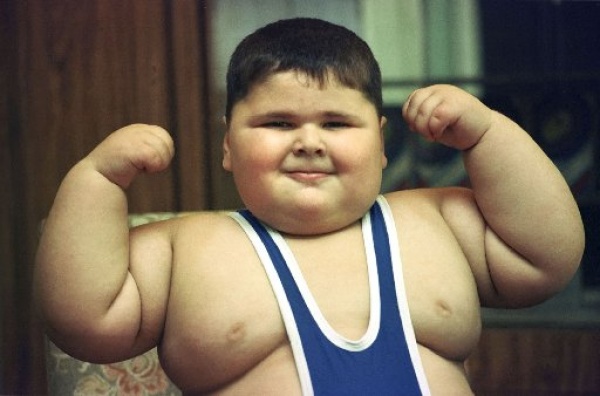Child Obesity and Heart Health Concerns
Child obesity has become an epidemic in the United States and it is a sad fact that children above the age of two are now overweight. Today, almost one out of every five children is obese in the United States. This places a heavy burden on the already teetering healthcare costs which would be needed to hire and train additional healthcare professionals and specialists required in treating children with health problems.

Heart Health
Obesity puts an undue stress on the heart and increases the risk of developing high blood pressure and high cholesterol. This will lead to cardiovascular disorders and dysfunctions such as heart attacks and heart failures. A heart healthy lifestyle will certainly reduce weight and increase lifespan.
During an ultrasound study conducted among children who were obese, it was found that the heart vessels in these children had thickened artery walls similar to that of a forty-five year old adult with heart disease, thus proving that heart disease has now become a condition of children as well.
Juvenile Diabetes
As the body weight increases, the need for insulin increases. The overworked pancreas will eventually become unproductive resulting in juvenile diabetes, a condition seen only in adults a few years ago. But now with uncontrolled weight, young children today are being treated as juvenile diabetics.
Emotional toll
Overweight kids are often the target of other kids and weight becomes an issue of emotional trauma. This further leads to childhood depression and poor performance in schools which in turn results in overeating in order to ‘feel good’. This becomes a vicious cycle which is carried forward into adolescence and adulthood.
How to prevent childhood obesity?
Some of the schools have started taking notice of this issue and is now making strides in a bid to raise awareness among children and parents about healthy food choices and about incorporating fitness regimens in our daily lives.
The school cafeteria menu is reflective of the healthy choice changes that are being promoted. Fat free milk and 1% milk is offered to the children instead of the 2% and whole milk choices that were offered before.
Health and Fitness Education
The school is a child’s home away from home and a place where the child spends a considerable amount of time imbibing pearls of wisdom and etiquettes of the society we live in. So this is the right place to start inculcating a healthy lifestyle as well.
Fifth graders in the schools in California have to undergo a Physical Fitness Test along with the California Standard Test. This has propelled the school staff into action and now teachers can be seen encouraging the kids to run a lap or two during recess. Various activities are planned during the recess after lunch to motivate the kids to get moving.
Need for trained professionals
Obesity in children is slowly becoming a national pediatric crisis. This increases the need for professionals who are qualified and trained in taking care of the needs of ailing children. Additional pediatric nurses, pediatric nurse practitioners, pediatricians and other child specialists will be required in the long term if the present crisis is allowed to continue.
Certifications
All healthcare professionals need to be certified in life saving courses like BLS, CPR, ACLS, and PALS which is mandatory for saving the lives of patients in cardiac emergencies.
- BLS: Basic Life Support certification is a course which offers training in administering CPR (cardio pulmonary resuscitation) to revive victims with compromised circulation. It also teaches the Heimlich maneuver, a technique used to save victims who choke on food or in the case of infants and toddlers, other objects like buttons or small toy parts.
- CPR: Cardio pulmonary resuscitation is a basic course which teaches the technique of mouth to mouth resuscitation used in reviving people who have collapsed and stopped breathing.
- ACLS: Advanced Cardiovascular Life Support is an advanced course mandatory for healthcare professionals involved in the care of patients undergoing cardiac arrest.
- PALS: Pediatric Advanced Life Support course offers advanced training specifically for healthcare professionals who are involved in the treatment of children in critical conditions.
Most of the hospitals require that their employees be certified in one or more of the above certifications depending on which department they work. With the advancement in technology, it is very easy to receive these certifications from the comfort of your home. Many organizations offer these courses online and they will also send you the certification card in the mail.
Visit Healthedsolutions.com for more information on the online certifications.

